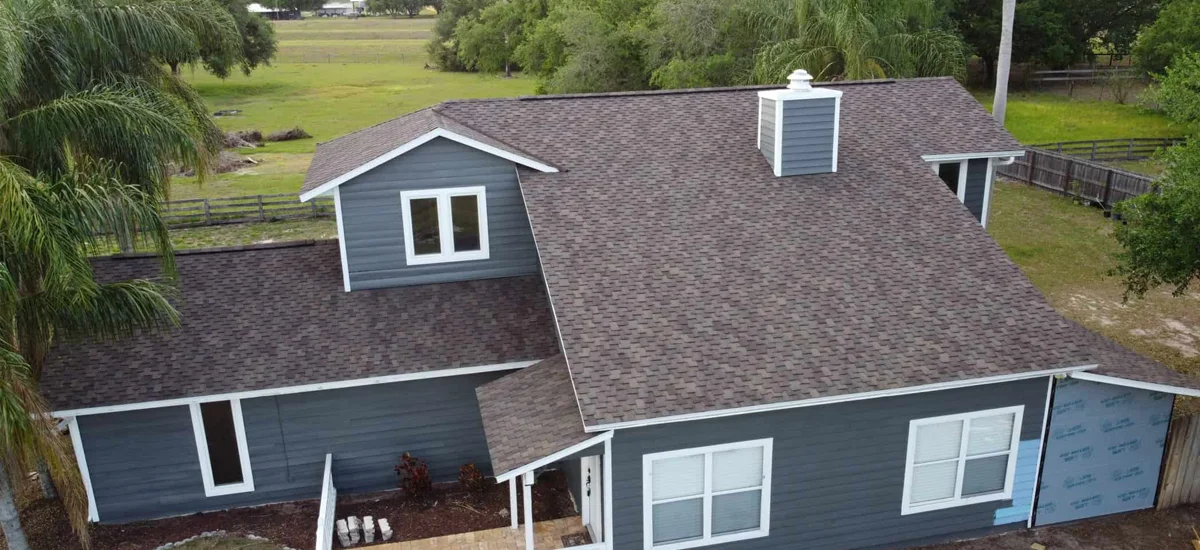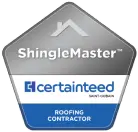Increasing Home Value with Storm-Resistant Roofing
Your home is likely your most significant investment, and protecting it is paramount. One of the most critical, yet often overlooked, aspects of home maintenance is the roof. More than just a shield against the elements, your roof plays a crucial role in the overall value of your property. When it comes to safeguarding your home from extreme weather, storm-resistant roofing stands out as an essential upgrade. Not only does it provide enhanced protection against severe weather conditions, but it also significantly boosts your home’s market value.
In today’s volatile climate, where storms are becoming more frequent and intense, investing in storm-resistant roofing is not just a smart choice—it’s a necessary one. This article explores how storm-resistant roofing can increase your home’s value, offering both immediate and long-term benefits.
Understanding Storm-Resistant Roofing
Storm-resistant roofing is designed to withstand extreme weather conditions, such as high winds, heavy rain, hail, and even hurricanes. These roofs are built from durable materials that provide superior protection against the elements. Common materials used in storm-resistant roofing include metal, asphalt shingles, slate, and impact-resistant tiles, all engineered to endure harsh weather while maintaining structural integrity.
This type of roofing is not just about durability; it’s about peace of mind. Knowing that your home can stand strong in the face of severe weather events adds immense value to your property. Prospective buyers recognize the importance of a strong, resilient roof, making storm-resistant roofing a significant selling point.
The Economic Impact of Storm-Resistant Roofing
Investing in storm-resistant roofing might seem costly initially, but it’s an investment that pays off in several ways. First and foremost, it can lead to substantial savings on homeowners’ insurance. Insurance companies often offer discounts for homes with storm-resistant features, as these homes are less likely to suffer significant damage during a storm.
Additionally, storm-resistant roofing reduces the need for frequent repairs or replacements. Traditional roofs may require extensive repairs after a major storm, leading to unexpected expenses. With a storm-resistant roof, these repair costs are minimized, translating to lower maintenance expenses over time.
Boosting Curb Appeal with Storm-Resistant Roofing
While functionality is key, aesthetics also play a significant role in your home’s value. Storm-resistant roofing comes in various styles, colors, and materials, allowing you to choose an option that complements your home’s architectural style. Whether you prefer the sleek look of metal roofing, the classic appeal of asphalt shingles, or the timeless beauty of slate, storm-resistant options are available that do not compromise on aesthetics.
Enhanced curb appeal is a critical factor in home valuation. A well-maintained, visually appealing roof can significantly improve your home’s overall appearance, making it more attractive to potential buyers. The combination of durability and beauty offered by storm-resistant roofing is an unbeatable package that enhances both the look and value of your home.
Long-Term Benefits for Homeowners
One of the most compelling reasons to invest in storm-resistant roofing is the long-term value it provides. This type of roofing is built to last, often far exceeding the lifespan of traditional roofing materials. With proper installation and maintenance, storm-resistant roofs can last decades, providing continuous protection and peace of mind.
Moreover, the longevity of storm-resistant roofing means fewer replacements over the years. This not only saves money but also reduces the environmental impact associated with frequent roof replacements. By choosing a durable, sustainable option, you’re investing in the future of your home and the planet.
How Storm-Resistant Roofing Increases Property Value
When it comes to selling your home, storm-resistant roofing is a significant selling point. Buyers are increasingly looking for homes that are not only aesthetically pleasing but also resilient against extreme weather. A home with storm-resistant roofing is perceived as a well-maintained, secure property, which is a major advantage in the real estate market.
Homes with storm-resistant roofs tend to sell faster and at higher prices. This is because buyers recognize the value of a home that requires less maintenance and is better protected against natural disasters. In areas prone to severe weather, the demand for storm-resistant features is particularly high, making this investment a smart choice for homeowners looking to maximize their property’s value.
Energy Efficiency and Environmental Benefits
Storm-resistant roofing doesn’t just protect against physical damage; it also offers energy efficiency benefits. Many storm-resistant materials have reflective properties that reduce heat absorption, keeping your home cooler in the summer. This can lead to lower energy bills, which is an attractive feature for environmentally conscious buyers.
In addition to energy savings, the environmental benefits of storm-resistant roofing are significant. By choosing long-lasting, sustainable materials, you’re reducing the need for frequent replacements, which in turn reduces waste and the environmental impact of manufacturing new roofing materials. This eco-friendly aspect adds another layer of appeal to potential buyers, particularly those who prioritize sustainability.
Storm-Resistant Roofing: A Wise Investment for Every Homeowner
Whether you plan to stay in your home for many years or are considering selling in the near future, storm-resistant roofing is an investment that pays off. It offers immediate protection against severe weather, reduces maintenance costs, enhances curb appeal, and increases your home’s overall value.
Furthermore, as weather patterns continue to shift and the frequency of extreme weather events rises, the demand for storm-resistant features in homes will only grow. By investing in storm-resistant roofing now, you’re not only protecting your home but also positioning it as a desirable property in a competitive real estate market.
Choosing the Right Storm-Resistant Roofing Material
Selecting the right material for your storm-resistant roof is crucial. Factors such as your local climate, the architectural style of your home, and your budget will all influence your choice. Here’s a brief overview of some popular storm-resistant roofing materials:
- Metal Roofing: Known for its durability and resistance to high winds and heavy rain, metal roofing is a top choice for storm-resistant roofing. It’s also fire-resistant and can last up to 50 years or more with proper maintenance.
- Asphalt Shingles: Modern asphalt shingles are available in impact-resistant varieties that can withstand hail and high winds. They are also more affordable compared to other materials, making them a popular choice for homeowners on a budget.
- Slate: Although more expensive, slate is incredibly durable and offers excellent protection against storms. It’s also highly attractive and can significantly boost your home’s curb appeal.
- Tile Roofing: Clay and concrete tiles are not only beautiful but also highly resistant to wind and impact. However, they are heavier than other materials and may require additional structural support.
Professional Installation: The Key to Maximizing Your Investment
No matter which material you choose, professional installation is crucial to ensuring that your storm-resistant roof performs as expected. Improper installation can lead to leaks, poor insulation, and even structural damage during a storm. To maximize the benefits of your storm-resistant roofing, it’s essential to hire a reputable roofing contractor with experience in installing these types of roofs.
Look for a contractor who is licensed, insured, and has a proven track record of successful storm-resistant roofing installations. Check reviews, ask for references, and ensure that they provide a comprehensive warranty on both materials and labor.
Cost Considerations and Return on Investment
The cost of storm-resistant roofing can vary widely depending on the material you choose, the size of your roof, and the complexity of the installation. While the initial investment may be higher than traditional roofing options, the long-term savings on repairs, maintenance, and insurance can make it a more cost-effective choice in the long run.
Moreover, the return on investment (ROI) for storm-resistant roofing is substantial. Studies show that homeowners can recoup a significant portion of the roofing costs when selling their homes, especially in areas prone to severe weather. In some cases, the increased home value and energy savings can result in a complete ROI over time.
Maintenance Tips for Storm-Resistant Roofing
While storm-resistant roofs are designed to be low-maintenance, regular inspections and upkeep are still necessary to ensure they remain in top condition. Here are some maintenance tips to help extend the life of your storm-resistant roof:
- Regular Inspections: Schedule annual roof inspections to check for any signs of damage or wear. This is particularly important after a major storm, even if your roof appears to be intact.
- Clean Gutters: Keep gutters clean and free of debris to prevent water backup, which can cause roof damage over time.
- Trim Trees: Overhanging branches can pose a risk to your roof during a storm. Trim trees regularly to prevent branches from breaking off and damaging your roof.
- Prompt Repairs: If you notice any damage, such as missing shingles or cracked tiles, address it immediately to prevent further issues.
The Future of Roofing: Innovations in Storm-Resistant Technology
As technology advances, so do the materials and methods used in storm-resistant roofing. Innovations such as smart roofing systems, which include sensors to monitor the roof’s condition in real time, are becoming more common. These systems can detect potential problems before they become serious, allowing homeowners to address issues proactively.
Additionally, new materials are being developed that offer even greater durability and energy efficiency. For example, some manufacturers are experimenting with composite materials that combine the best properties of different roofing types, offering superior protection against a range of weather conditions.
FAQs
How does storm-resistant roofing increase home value?
Storm-resistant roofing increases home value by providing enhanced protection against severe weather, reducing maintenance costs, and improving curb appeal. Homes with storm-resistant roofs are more attractive to buyers and can command higher prices on the market.
Is storm-resistant roofing more expensive than traditional roofing?
The initial cost of storm-resistant roofing can be higher than traditional roofing materials. However, the long-term savings on repairs, maintenance, and insurance, combined with the increased home value, make it a cost-effective investment.
What materials are best for storm-resistant roofing?
Popular materials for storm-resistant roofing include metal, impact-resistant asphalt shingles, slate, and tile. Each material offers different benefits, so it’s important to choose one that suits your local climate and your home’s architectural style.
Can storm-resistant roofing help reduce energy bills?
Yes, many storm-resistant roofing materials have reflective properties that reduce heat absorption, helping to keep your home cooler in the summer and lowering energy bills.
Do I need to hire a professional to install storm-resistant roofing?
Yes, professional installation is essential to ensure that your storm-resistant roof performs as expected. Improper installation can lead to leaks, poor insulation, and structural damage, especially during a storm.
How long does storm-resistant roofing last?
The lifespan of storm-resistant roofing varies depending on the material. Metal roofs can last 50 years or more, while slate and tile roofs can last even longer. Regular maintenance can help extend the life of your roof.
Conclusion
Investing in storm-resistant roofing is one of the smartest decisions you can make as a homeowner. It not only protects your property from the increasing threat of severe weather but also enhances your home’s value, curb appeal, and energy efficiency. As climate conditions become more unpredictable, the demand for durable, resilient roofing solutions will continue to rise. By choosing storm-resistant roofing, you’re not only safeguarding your investment but also ensuring your home remains a valuable asset for years to come.















